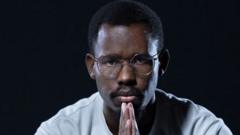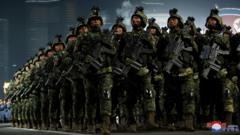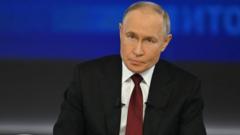In a nation staunchly advocating for Ukraine, an unexpected cultural conflict has emerged, highlighting the complexities of art and nationalism in turbulent times.
Cultural Struggles: Lithuania's Complex Relationship with Russian Art Amidst War

Cultural Struggles: Lithuania's Complex Relationship with Russian Art Amidst War
Lithuania's ban on Tchaikovsky's "Nutcracker" sparks divisive dialogue on culture and politics during the ongoing war with Russia.
As Lithuanians flocked out of the National Opera and Ballet Theater, discontent grew over the absence of Tchaikovsky's beloved Christmas ballet, "The Nutcracker," as the opera house chose to replace it with an Italian work in solidarity with Ukraine. The absence stemmed from Lithuania's commitment to a so-called "mental quarantine" of Russian culture since the invasion, a gesture aiming to express support for Ukraine during the ongoing conflict. However, this decision encountered substantial pushback from certain segments of the public, particularly after a recent government shift.
The newly appointed culture minister, Sarunas Birutis, publicly stated his appreciation for Tchaikovsky, asserting that viewing a ballet should not contribute to pro-Kremlin sentiments. His comments provoked a sharp backlash from Ukrainian supporters while reigniting applause from proponents of Russian music, demonstrating the generational rift on the matter.
The discussion surrounding Tchaikovsky's works emphasizes a broader debate about art's role during times of conflict. Some argue that culture should remain untainted by political contexts, while others believe that it must reflect national sentiments, notably in the face of an ongoing war. The uproar not only reflects differing personal values but also a cultural schism within Lithuanian society itself.
In essence, this discourse raises vital questions: Can a nation fully separate its artistic expressions from the political turmoil it faces? Is there a path toward recognizing the value of art that transcends the controversies surrounding its origins? As Lithuania grapples with these dilemmas, the world watches closely, aware that such cultural decisions resonate beyond this small Baltic state.
The newly appointed culture minister, Sarunas Birutis, publicly stated his appreciation for Tchaikovsky, asserting that viewing a ballet should not contribute to pro-Kremlin sentiments. His comments provoked a sharp backlash from Ukrainian supporters while reigniting applause from proponents of Russian music, demonstrating the generational rift on the matter.
The discussion surrounding Tchaikovsky's works emphasizes a broader debate about art's role during times of conflict. Some argue that culture should remain untainted by political contexts, while others believe that it must reflect national sentiments, notably in the face of an ongoing war. The uproar not only reflects differing personal values but also a cultural schism within Lithuanian society itself.
In essence, this discourse raises vital questions: Can a nation fully separate its artistic expressions from the political turmoil it faces? Is there a path toward recognizing the value of art that transcends the controversies surrounding its origins? As Lithuania grapples with these dilemmas, the world watches closely, aware that such cultural decisions resonate beyond this small Baltic state.






















